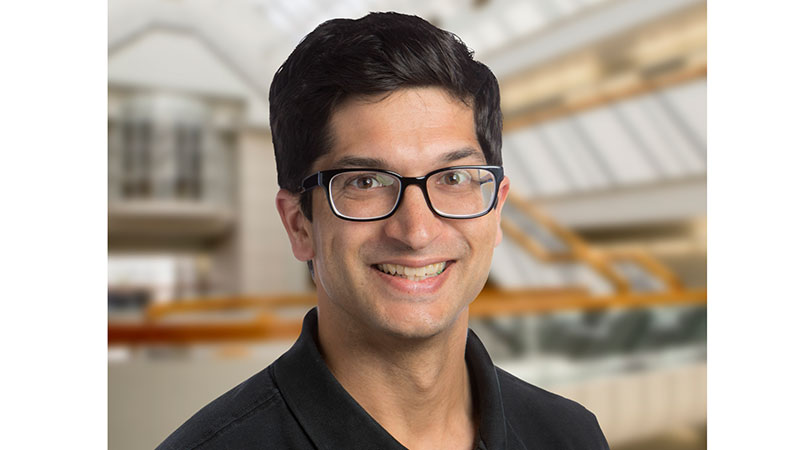
Scripps Research professor Ryan Shenvi, PhD, has been granted the 2022/23 ChemSocRev Pioneering Investigator Lectureship Award by the Royal Society of Chemistry. Shenvi was selected by the ChemSocRev Editorial Board based on his lab’s exceptional and groundbreaking contributions to chemistry research. He shares the award with Timothy Noël, professor and Chair of Flow Chemistry at the University of Amsterdam.
The Royal Chemistry Society began granting the award in 2012 to recognize scientists who are firmly established in their independent careers and are pioneers in the field of chemistry. As an award recipient, Shenvi will receive a financial honorarium, certificate, and an invitation to submit to ChemSocRev, as well as an invitation to join the ChemSocRev Advisory Board.
Shenvi’s research explores the function and therapeutic value of secondary metabolites, which are molecules produced by living organisms to help them thrive in their ecological niche. Evolutionary selection pressures endow these molecules with properties that are highly sought after in drug design, like the ability to survive the gut, penetrate the brain and selectively modify cells. His research sits at the intersection of chemical synthesis, catalysis and structural biology. By not only recreating but also improving these metabolites, his lab can, for example, remodel toxins to treat human disease.
Shenvi has won numerous awards and honors for his lab’s work, most recently the American Chemical Society’s Elias J. Corey Award for Outstanding Original Contribution in Organic Synthesis, the Tetrahedron Young Investigator Award and Japan’s Society of Synthetic Organic Chemistry’s Lectureship Award, among multiple others. He serves as advisory editor on the Angewandte Chemie Scientific Advisory Committee, executive editor at the Encyclopedia of Reagents for Organic Synthesis and as a member of the Editorial Advisory Board for Tetrahedron Chem, ACS Central Science and Accounts of Chemical Research.
Shenvi received his PhD in chemistry from Scripps Research, and his BS in chemistry from The Pennsylvania State University.